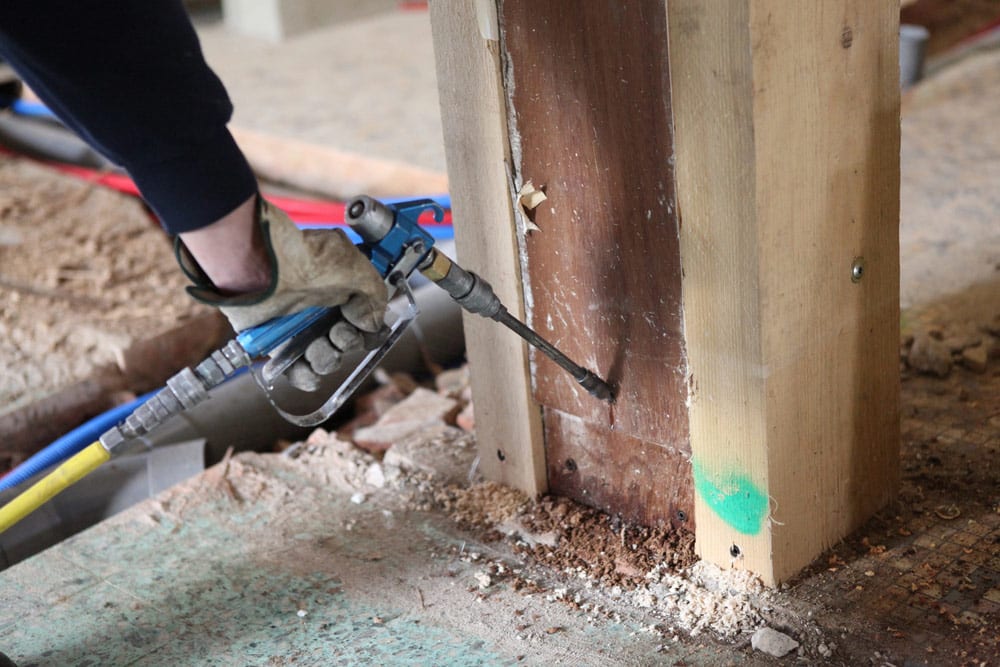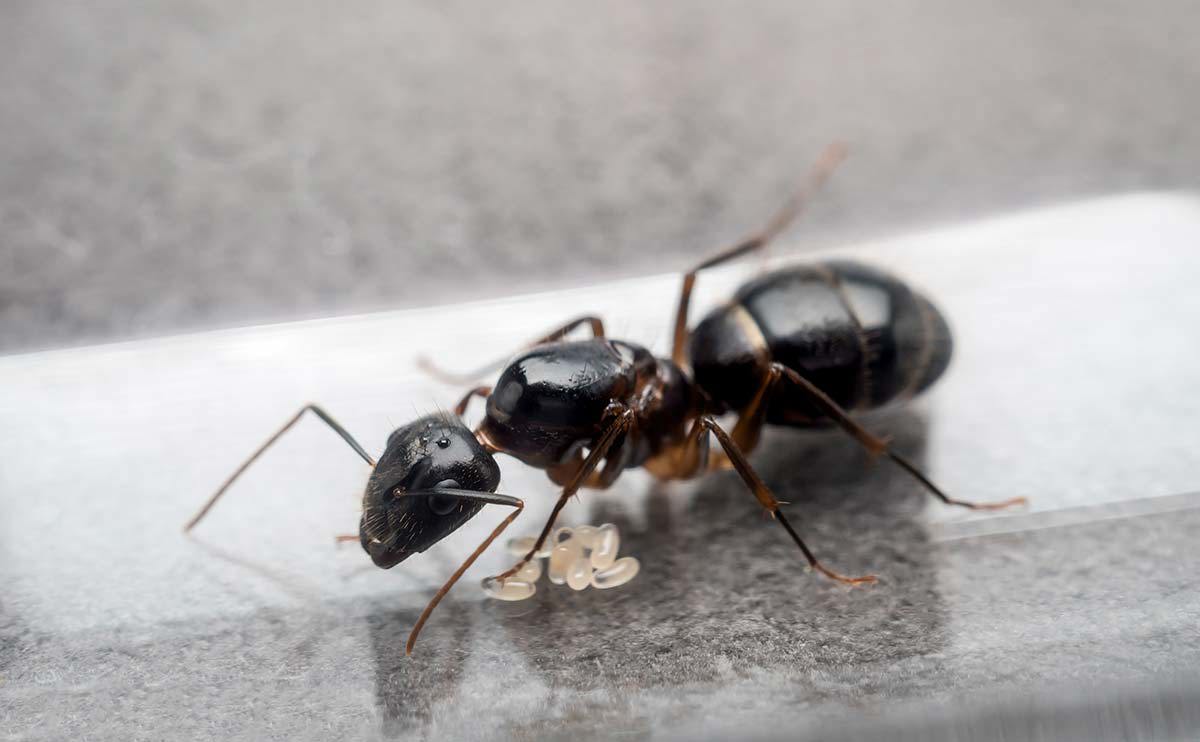Ecological Influence of Pest Control: Harmonizing Efficiency With Sustainability
The environmental impact of pest control is a critical problem that calls for a delicate balance between attaining effectiveness in guaranteeing and managing pests sustainability of our communities. From the use of harmful chemicals that leak right into our dirt and water to the unplanned consequences on non-target species, the repercussions of traditional bug control techniques are far-reaching.
Damaging Chemicals in Parasite Control
The usage of harmful chemicals in insect control positions significant ecological and wellness risks that warrant careful consideration and mitigation techniques. Herbicides, chemicals, and insecticides are frequently utilized to get rid of pests, but their widespread application can result in unexpected repercussions. These chemicals can contaminate soil, water resources, and the air, influencing not just the targeted parasites yet likewise helpful bugs, wildlife, and human beings.

To address these risks, integrated bug administration (IPM) methods are being advertised as a more lasting choice. IPM entails a mix of methods such as biological control, habitat manipulation, and the targeted use pesticides as a last resort (ant control lewisville nc). By taking on an alternative method to pest control, we can reduce the ecological and wellness effects related to damaging chemicals while efficiently managing pest populaces
Effect On Non-Target Variety
Thinking about the unintentional consequences of parasite control approaches, the influence on non-target varieties is an essential element that requires comprehensive evaluation. While parasite control actions aim to target details bugs, other microorganisms in the community might be unintentionally affected. Non-target types, including beneficial bugs, birds, mammals, and also plants, can suffer indirect or direct injury from pesticide applications or biological control approaches.
Pesticides can have sub-lethal or lethal impacts on non-target varieties. Insecticides developed to combat a certain insect parasite might damage pollinators like or all-natural predators such as ladybugs. Furthermore, chemical deposits can gather in the environment, influencing non-target organisms in time. Biological control agents, if not species-specific, can pose dangers to unplanned targets, interfering with the ecological balance.
To mitigate the effect on non-target species, integrated pest monitoring (IPM) strategies that emphasize an all natural strategy to pest control are advised. These approaches focus on the usage of eco-friendly techniques, decreasing damage to beneficial organisms while successfully handling pest populations. Performing thorough risk assessments and keeping an eye on the results of pest control initiatives are crucial actions in guarding non-target varieties and promoting overall ecological community wellness.
Soil and Water Contamination
Unplanned environmental repercussions of pest control techniques expand past affecting non-target varieties, with substantial effects for soil and water contamination - termite control. Chemicals, herbicides, and chemical plant foods used in bug control can leach right into the soil and pollute groundwater, posturing a threat to both water and earthbound communities.
Water contamination is an additional essential concern connected with bug control techniques. To minimize soil and water contamination from pest control tasks, incorporated insect administration strategies that focus on sustainability and decrease chemical inputs are essential.
Air Pollution From Chemical Usage
Exposure to air-borne pesticides throughout farming applications presents a considerable worry for air pollution control measures. They can volatilize right into the air and form unpredictable natural compounds (VOCs) and various other airborne pollutants when pesticides are sprayed onto plants - ant control. These chemicals can add to the formation of ground-level ozone, a major element of smoke that can have damaging effects on human wellness, plant productivity, and total air high quality. Additionally, pesticide drift, where chemicals are lugged by the wind to unplanned areas, can result in the contamination of neighboring environments and water bodies.

Techniques for Lasting Pest Control
In the world of agricultural methods, carrying out lasting pest control techniques is extremely important for keeping eco-friendly balance and protecting crop returns. Lasting pest control emphasizes the use of eco-friendly approaches to take care of pest populations efficiently while lessening injury to non-target microorganisms and communities. Integrated Insect Administration (IPM) is a commonly embraced technique that combines biological, cultural, physical, and chemical control methods to achieve long-term pest management options.
One secret technique in sustainable insect control is promoting biodiversity within agroecosystems. By enhancing all-natural enemies of pests, such as parasitoids and predators, farmers can reduce the demand for artificial chemicals. Crop rotation and diversification are also reliable methods to interrupt pest life cycles and develop much less positive problems for bugs to prosper. Furthermore, using pest-resistant plant ranges and utilizing methods like trap cropping can aid decrease insect stress without counting greatly on chemical interventions. Inevitably, by integrating these sustainable bug control methods, farmers can accomplish a balance in between pest administration effectiveness and ecological stewardship.
Verdict
To conclude, the ecological influence of bug control methods need to be thoroughly taken into consideration to stabilize effectiveness with sustainability. Harmful chemicals made use of in parasite control can result in dirt and water contamination, air contamination, and harm non-target types - termite control services. It is important to apply lasting pest control methods to decrease these negative effects on the atmosphere and advertise a much healthier ecosystem for future generations
By embracing an all natural strategy to pest control, we can minimize the environmental and health and wellness influences linked with hazardous chemicals while successfully taking care of pest populaces.

To reduce the air contamination triggered by chemical use, it is necessary to adopt incorporated bug management methods that focus on the use of non-chemical bug control methods, such as plant turning, natural killers, and resistant crop selections. Sustainable bug control stresses the use of eco friendly approaches to handle bug populaces efficiently while decreasing harm to non-target organisms and ecosystems. Integrated Bug Administration (IPM) is an extensively adopted technique that incorporates organic, cultural, physical, and chemical control techniques to accomplish long-term bug administration solutions.